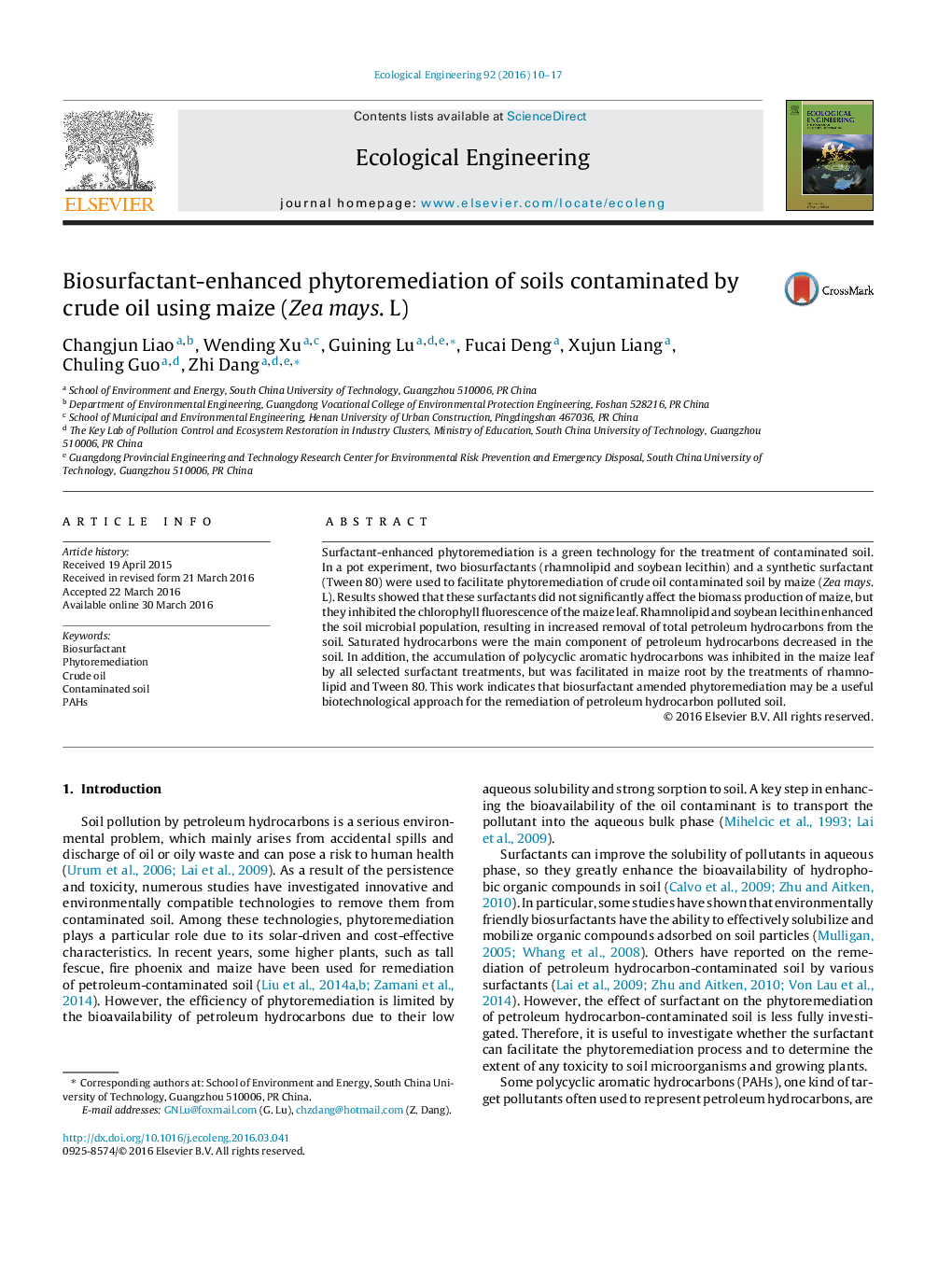| Article ID | Journal | Published Year | Pages | File Type |
|---|---|---|---|---|
| 4388604 | Ecological Engineering | 2016 | 8 Pages |
Surfactant-enhanced phytoremediation is a green technology for the treatment of contaminated soil. In a pot experiment, two biosurfactants (rhamnolipid and soybean lecithin) and a synthetic surfactant (Tween 80) were used to facilitate phytoremediation of crude oil contaminated soil by maize (Zea mays. L). Results showed that these surfactants did not significantly affect the biomass production of maize, but they inhibited the chlorophyll fluorescence of the maize leaf. Rhamnolipid and soybean lecithin enhanced the soil microbial population, resulting in increased removal of total petroleum hydrocarbons from the soil. Saturated hydrocarbons were the main component of petroleum hydrocarbons decreased in the soil. In addition, the accumulation of polycyclic aromatic hydrocarbons was inhibited in the maize leaf by all selected surfactant treatments, but was facilitated in maize root by the treatments of rhamnolipid and Tween 80. This work indicates that biosurfactant amended phytoremediation may be a useful biotechnological approach for the remediation of petroleum hydrocarbon polluted soil.
